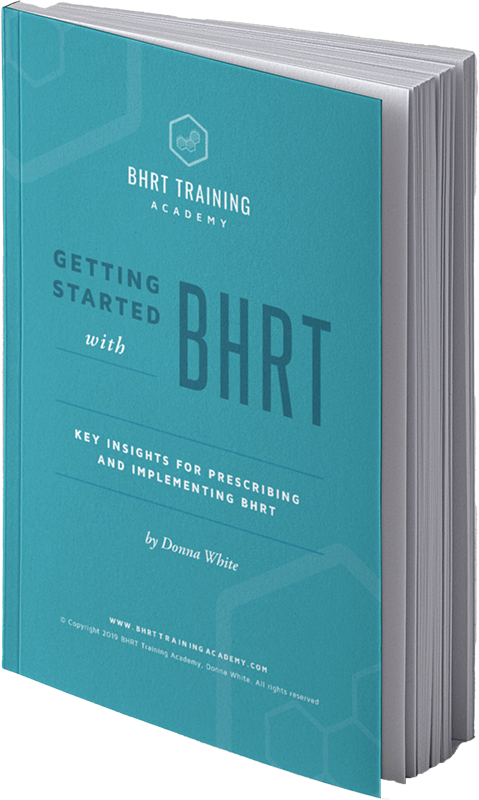Customizing Women’s Healthcare with Compounded Medications: Part 2

Female Pain Edition
This month, we continue our dive into the world of compounded medications and how they provide effective treatment options for your female patients. If you need to check out the first post, click here to catch up on all the valuable information we shared in Part I.
Background on Compounds
Many women’s health conditions, such as dyspareunia, lichen sclerosis, pelvic floor pain, and endometriosis, cause significant discomfort and impact quality of life. Unfortunately, traditional medications may not always provide effective relief and can have unwanted side effects. Compounded medications offer a personalized and potentially more effective solution for managing these conditions.
Compounding also allows healthcare providers to create tailored treatments with customized dosages and combinations of active ingredients that can address the specific needs of each individual patient. In this post, we will continue to explore the various compounded medications available for managing these women’s health conditions and how they can provide much-needed relief for those struggling with symptoms.
Dyspareunia, Vestibulitis, and Vulvodynia
Painful sex can be a source of frustration and discomfort for many women. Dyspareunia, vestibulitis, and vulvodynia cause pain during sexual intercourse. These conditions are often linked to declining estrogen levels, which make vaginal tissues thinner and drier.
Fortunately, compounded formulations of medications such as estrogens, lidocaine, gabapentin, amitriptyline, baclofen, diazepam, and ketamine can provide relief for patients.
Lichen Sclerosis
Lichen Sclerosis is a chronic, painful condition characterized by white patches of skin in the genital and anal area, which causes itching, discomfort, and sometimes sores. Steroid creams are commonly used to alleviate itching, but a new medication called LDN, or Low Dose Naltrexone, has shown promising results in reducing itching and promoting the healing of vaginal tissues.
LDN is a medication used to treat autoimmune disorders and has successfully treated various chronic inflammatory conditions, including Lichen Sclerosis. Other treatments include Clobetasol vaginal ointment, Tacrolimus vaginal gel, and testosterone in Aquaphor cream.
Pelvic Pain
Pelvic pain is becoming more common (affecting 1 in 8 women) and can be caused by various conditions, including infections, endometriosis, cysts, and inflammatory diseases. The pain varies in severity and duration and can really affect a woman’s quality of life.
Compounded medications offer a wide range of treatment options for patients, with medications traditionally taken orally being compounded for vaginal use, delivering better therapeutic outcomes. Because there are so many causes of pelvic pain, compounding allows providers to specifically address symptoms and causes, utilizing delivery methods to provide the most effective and fastest relief.
Endometriosis
Endometriosis is a common condition that affects 10-20% of women of childbearing age and can lead to infertility. Symptoms vary but include painful periods, cramps, lower back pain, and pain during sex or bowel movements.
Compounded medications are available to manage endometriosis symptoms, such as progesterone vaginal gel or suppositories and Ibuprofen or Ketoprofen in Lipoderm. These medications can be applied to the lower back or pelvic area, and you can help determine the best course of treatment for each patient.
CBD
CBD has recently gained popularity for managing various types of female pain, including endometriosis, vulvodynia, vaginismus, lichen sclerosis, and interstitial cystitis. Pelvic floor physical therapy can help with muscle tension and bring awareness to the nervous system, which plays a significant role in pelvic pain.
CBD promotes muscle relaxation, increases blood flow to the tissues of the vulva and vagina, enhances pleasure, and increases lubrication. In addition, research has shown that activating the endocannabinoid receptors inhibits endometriotic tissue from proliferating in mice. Various CBD options include Ananda Bliss Intimate Oil, Ananda Endo Relief Cream, Foria Relief Suppositories, and Foria Intimacy Suppositories.
Genital Herpes
Genital herpes is a common sexually transmitted infection caused by the herpes simplex virus (HSV-2), which lies dormant in the body and can reactivate several times a year. The symptoms of genital herpes include pain, itching, and tingling before sores appear in the genital area.
Although there is no cure for the herpes virus, compounded options can offer symptom relief and help manage outbreaks. Combination therapies with antivirals, numbing anesthetics, and anti-inflammatories can be personalized to meet patient needs and provide better therapeutic outcomes.
Need More Information?
There is so much more to learn about compounded medications; this is only an introduction. This post was based on a Master’s Level Training presented by Pam Bramlett, RPh, which is included in the BHRT Provider Training Program for all students. In trainings like these, our providers explore the topics on a much deeper level.
If you’re interested in learning more about female compounds or how BHRT can benefit your patients, schedule a call with our Provider Education Specialist. And be sure to check back next month for the final part of this series.

Get the quick read ebook,
Getting Started with BHRT -
Key Insights to Prescribing and Implementing BHRT.
CME's - Earn while you learn.
